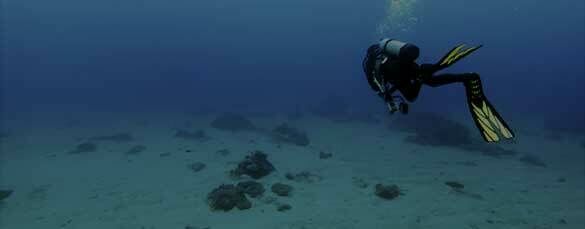Asthma
It has been agreed by the UKDMC that carefully selected asthmatics can probably safely scuba dive.
These asthmatics have to demonstrate acceptable lung function on their normal medication, which can be optimised to achieve this.
We accept the use of inhaled steroids, long acting beta 2 agonists & leukotriene antagonists. Patients should be managed in accordance with the accepted guidelines in their country of origin.
There are good theoretical reasons why asthmatic divers may be at increased risk in the diving environment.
Asthma can be precipitated by cold air, exercise & emotion all of which are found in the diving environment. An attack in water may be fatal.
The current evidence is that the asthmatics we allow to dive are probably no more at risk than the population as a whole to suffer from DCI.
The aim of the rigorous medical assessment is to exclude individuals with unstable airways, from diving & hence minimise the risk of an attack in the water.
Asthmatics have inflammatory exudates (mucus) in their airways which in combination with bronchospasm (narrowing of the airways) can cause a blockage in the airways. Normally as the diver ascends the air in the lungs expands & is breathed out. If there is a blockage in the airways this can lead to pulmonary barotrauma (lung rupture) causing a collapsed lung & or air embolism (stroke) All of which can be fatal.
As we descend the gas we breathe, becomes more dense so by 30M we are using about half our available exercise capacity just to breath. An asthma attack will make it even harder to breath. The diver may not even be able to swim as so much energy is being used up just breathing. Underwater this could be fatal.
Likewise panic underwater due to an inability to breathe, can lead to lose of control which could also be fatal
To minimise the risks of diving with asthma we recommend the following:
- The diver should do their peak flow (PF) twice a day for at least three days before diving & during the diving period. Should it drop 15% below that individuals normal best they must not dive, until it has been normal for 48 hours
- If the diver has had to use a reliever inhaler they must not dive until their PF has been normal for 48 hours
- Should the diver become short of breath or wheezy on the surface or underwater the dive should be abandoned
- Due to the theoretical risk of barotrauma all ascents should be slow but within the recommended computer ascent rate. In particular the last 5 meters should be very slow
- It may be a good idea to take a reliever inhaler half an hour before diving to decrease the risk of bronchospasm
- If there is any change in the diver’s overall asthma control they should seek further advice from their GP & then their diving physician before further diving.
Asthma improves in many children during adolescence so individuals with childhood asthma are less likely to meet the criteria for fitness to dive before they reach adulthood.



